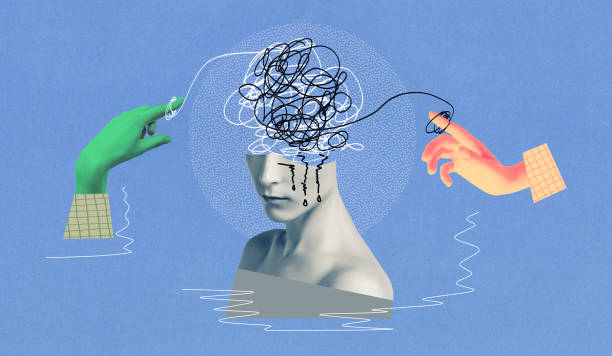Understanding the Concept of Mental Power
The human mind has always been considered one of the most mysterious forces in existence. Across cultures, stories have emerged about individuals with extraordinary abilities who could influence the physical world without direct physical contact. The idea that one could move or manipulate objects through sheer mental concentration continues to inspire debates, research, and even entertainment.
At the heart of this concept lies telekinesis, often referred to as psychokinesis. This is described as the ability to move objects using only the power of thought. While mainstream science remains skeptical, countless books, movies, and cultural legends have kept the fascination alive. It is precisely this fascination that often finds its way into word games, puzzles, and crosswords where people encounter phrases like “the moving of objects with mental power crossword.”
Historical Roots of Telekinesis
The notion of moving objects with the mind is not new. Ancient texts from different civilizations tell stories of shamans, monks, or spiritual figures who could bend the natural laws with focused intent. In many traditions, this was associated with divine blessings or mystical training. Such stories gave birth to the cultural foundation for what we now label as telekinesis.
In the modern era, particularly during the 19th and 20th centuries, interest in paranormal abilities soared. Psychic demonstrations, séance gatherings, and even stage performances made telekinesis a popular subject of intrigue. While skeptics often debunked these displays as trickery, the cultural impact was undeniable. It influenced everything from literature to puzzles, where clues about telekinesis became common in games like “the moving of objects with mental power crossword.”
Telekinesis in Popular Culture
Movies, television shows, and novels have always embraced telekinesis as a thrilling narrative element. Characters who could bend spoons, lift objects, or even battle enemies with their minds became household names in entertainment. These portrayals allowed audiences to imagine what life would be like if mental powers were real.
In many science fiction and fantasy stories, telekinesis is presented as a symbol of strength, discipline, and intelligence. It represents the untapped potential of the human brain and the mysteries of consciousness. These ideas seep into everyday experiences such as crosswords, where clues about telekinesis challenge players to connect entertainment with knowledge.
Scientific Studies and Skepticism
Over the years, researchers have conducted experiments to test claims of psychokinesis. From spoon-bending demonstrations to controlled laboratory settings, attempts have been made to capture evidence of mental influence on objects. Unfortunately, the results often failed to meet scientific standards of repeatability and reliability.
Despite this, interest has not faded. Many enthusiasts argue that science has yet to fully understand the depth of human consciousness, and therefore, psychokinesis should not be dismissed entirely. Whether real or imagined, the idea remains alive in both academic circles and casual spaces, including crossword puzzles that ask for terms related to mental object movement.
Crosswords as a Reflection of Cultural Fascination
Crossword puzzles often pull from cultural, historical, and scientific references to create challenging clues. When a clue involves telekinesis, it immediately captures the curiosity of the solver. This is because the subject itself is mysterious and thought-provoking, making it stand out from ordinary vocabulary clues.
The use of terms like “telekinesis” or descriptive phrases such as “moving objects with the mind” highlights the cultural significance of the concept. It demonstrates how human curiosity about extraordinary abilities translates even into leisure activities. Crosswords keep the mystery alive, allowing enthusiasts to engage with the subject while sharpening their wordplay skills.
Psychological Perspective on Belief in Mental Powers
From a psychological viewpoint, the belief in telekinesis reveals much about human imagination and cognitive tendencies. People are naturally drawn to mysteries and concepts that defy logic. This curiosity fuels not only entertainment but also personal beliefs in the possibility of untapped powers within the mind.
Psychologists suggest that belief in telekinesis may be linked to the human desire for control. In a world where much feels uncertain, the idea of manipulating reality with thought alone is empowering. Even if unproven, the belief serves as a symbolic reminder of mental strength and human resilience.
Telekinesis in Wordplay and Linguistics
Word games such as crosswords often reflect the richness of language. The clue “the moving of objects with mental power crossword” exemplifies how unique phrases are incorporated to make solving both fun and educational. Such clues test not only vocabulary but also general knowledge about cultural and paranormal themes.
For crossword enthusiasts, coming across unusual topics like telekinesis can be refreshing. It challenges the solver to recall niche knowledge, offering a sense of achievement when the correct word or phrase is discovered. This intersection of wordplay and paranormal curiosity makes for an engaging puzzle-solving experience.
The Role of Media in Shaping Perceptions
Media plays a significant role in how people perceive telekinesis. From documentaries that investigate psychic phenomena to films that exaggerate these powers, the portrayal of mental object movement is often sensationalized. This influences how people respond when they encounter such terms in a puzzle or conversation.
These portrayals blur the line between science and fiction. For some, they reinforce skepticism, while for others, they encourage hope that the human mind holds greater potential than currently understood. This duality ensures that telekinesis continues to appear in cultural references, including crossword puzzles.
Educational Value of Paranormal-Themed Crosswords
Crosswords are more than a pastime; they are also tools for learning. By incorporating terms like telekinesis, they expand vocabulary and spark curiosity about unfamiliar topics. A solver who encounters such a clue may be inspired to learn more about the subject.
This educational value is subtle but significant. It demonstrates how recreational activities can also contribute to broader knowledge. Puzzles with references to psychic powers encourage both entertainment and exploration, bridging the gap between fun and intellectual growth.
Why the Fascination Persists
The persistence of telekinesis as a popular theme can be attributed to humanity’s endless quest for mystery. People are fascinated by what lies beyond the boundaries of known science. Whether it is through novels, films, or puzzles, the idea of moving objects with the mind refuses to fade away.
Even without scientific validation, telekinesis continues to inspire curiosity, discussion, and creativity. It remains a symbol of the human imagination at work, constantly searching for possibilities beyond the obvious. Crosswords, with their clever integration of such terms, keep that fascination alive in everyday entertainment.
Conclusion: The Endless Puzzle of Telekinesis
The idea of telekinesis the moving of objects through mental power remains one of the most intriguing subjects in human imagination. While science may not fully support its existence, the cultural and psychological impact is undeniable. It fuels stories, inspires curiosity, and even makes its way into simple yet challenging games like crossword puzzles.
For many, solving a clue such as “the moving of objects with mental power crossword” is not just about finding the right word. It is also about engaging with a mystery that has fascinated people for centuries. Whether viewed as fact, fiction, or fun wordplay, telekinesis will always remain an enduring puzzle in the human quest for knowledge.





